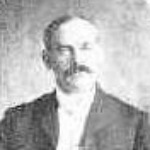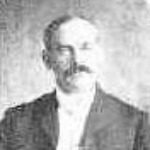
Quotes by R.C.H. Lenski
Even in the midst of His death, He had to be the mighty God in order by His death to conquer death.
From Interpretation of Galatians, Ephesians, Philippians, Augsburg by Richard C. Lenski copyright © 1961 Augsburg Publishing House. Used by Permission.
“Flock” brings to mind all the shepherd imagery found in the Scriptures: the sheep gentle, defenseless, liable to stray, needing a shepherd, happy, peaceful under his care, pitiful when lost, scattered, etc. This is “God’s flock” that was bought with a great price (Ac 20:28), that is exceedingly precious in His sight, a great trust placed into the hands of human shepherds who are to pattern after Yahweh, the Shepherd (Psm. 23), and Christ, the Archshepherd (1 Pet. 5:4). What shepherd could have the care of any part of God’s flock and treat it carelessly!
From Interpretation of the Epistles of Saint Peter, St. John and St. Jude by Richard C. Lenski copyright © 1966 Augsburg Publishing House, p. 218.
It is the best and truest friend who honestly tells us the truth about ourselves even when he knows we shall not like it. False friends are the ones who hide such truth from us and do so in order to remain in our favor.
Quoted by Curtis C. Thomas, Practical Wisdom for Pastors, Crossway Books, 2001, p. 24.
Without previous thinking, planning, imagining…the apostles will receive directly from God just what to utter. It will come into their minds just as it is needed, and thus they will utter it aloud. The apostles, indeed, make utterance, and yet they do not, for their act is due to the Holy Spirit, so that most properly He is the one who does this uttering. Everything that is mechanical, magical, unpsychological is shut out. The apostles will not be like the demoniacs – their organs of speech and their very wills being violated by a demon. Absolutely the contrary: mind, heart, will operate freely, consciously, in joyful, trustful dependence on the Spirit’s giving, who enables them to find just what to say and how to say it down to the last word, with no mistake or even a wrong word due to faulty memory or disturbed emotions occurring. This, of course, is Inspiration, Verbal Inspiration.
The grief of repentance is never loss in any way; not to experience this grief, that is loss indeed.
As the flower in the garden stretches toward the light of the sun, so there is in the child a mysterious inclination toward the eternal light. Have you ever noticed this mysterious thing that when you tell the smallest child about God, [he or she] never asks with strangeness and wonder, “What or who is God – I have never seen Him,” but listens with shining face to the words as though they soft loving sounds from the land of home. Or when you teach a child to fold [his or her] little hands in prayer that [he or she] does this as though it were a matter of course, as though [it was] opening for [the child] that world of which [he or she] had been dreaming with longing and anticipation. Or tell them, these little ones, the stories of the Savior, show them the pictures with scenes and personages of the Bible – how their pure eyes shine, how their little hearts beat.
The noun [mercy] and its derivatives always deal with what we see of pain, misery, and distress, these results of sin; and grace always with the sin and the guilt itself. The one extends relief, the other pardon; the one cures, heals, helps, the other cleanses and reinstates. With God [grace] is always first and [mercy] is second.
From Interpretation of Saint Matthews Gospel by Richard C. Lenski, © 1932, Augsburg Publishing House, p. 743.
